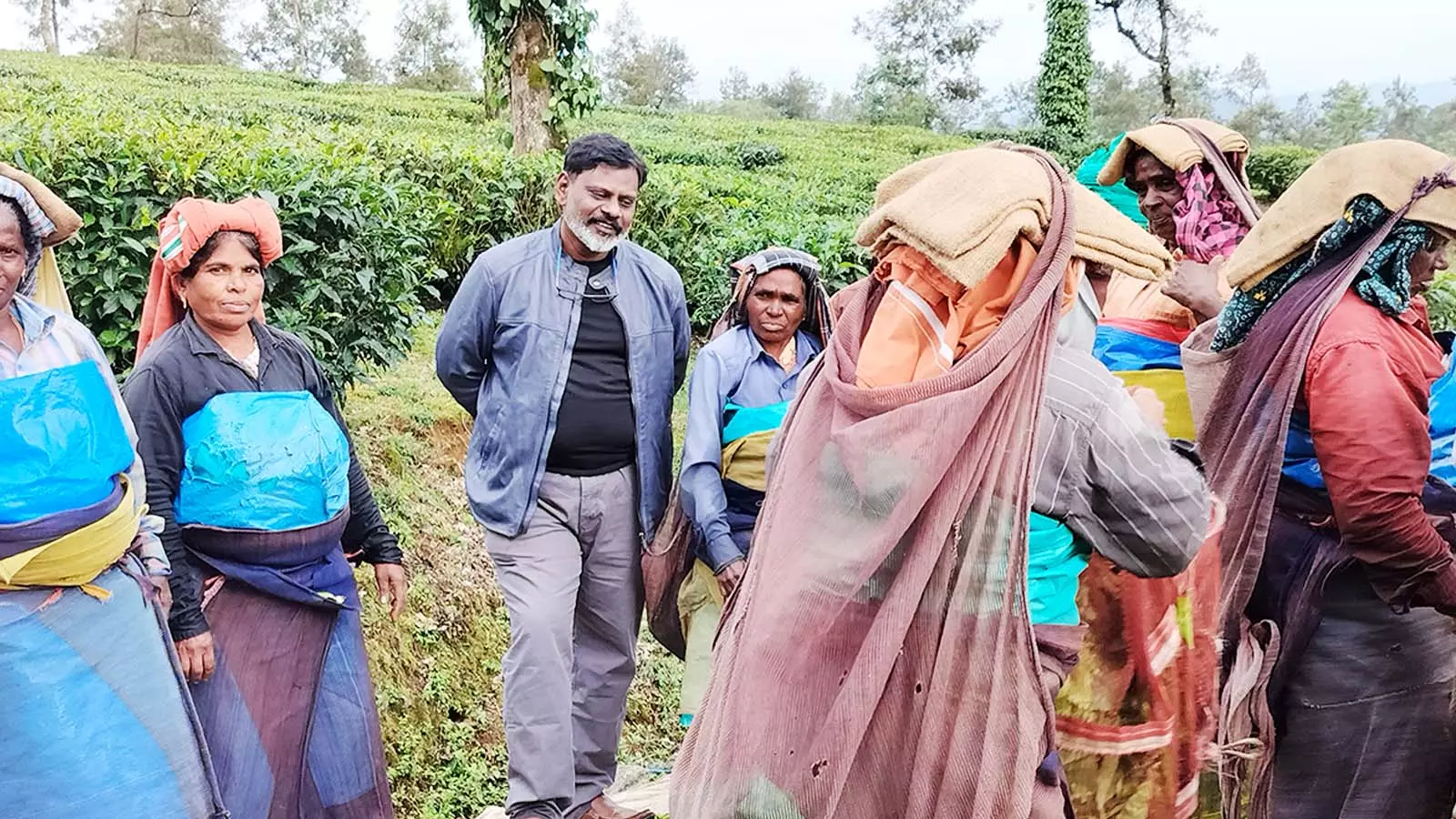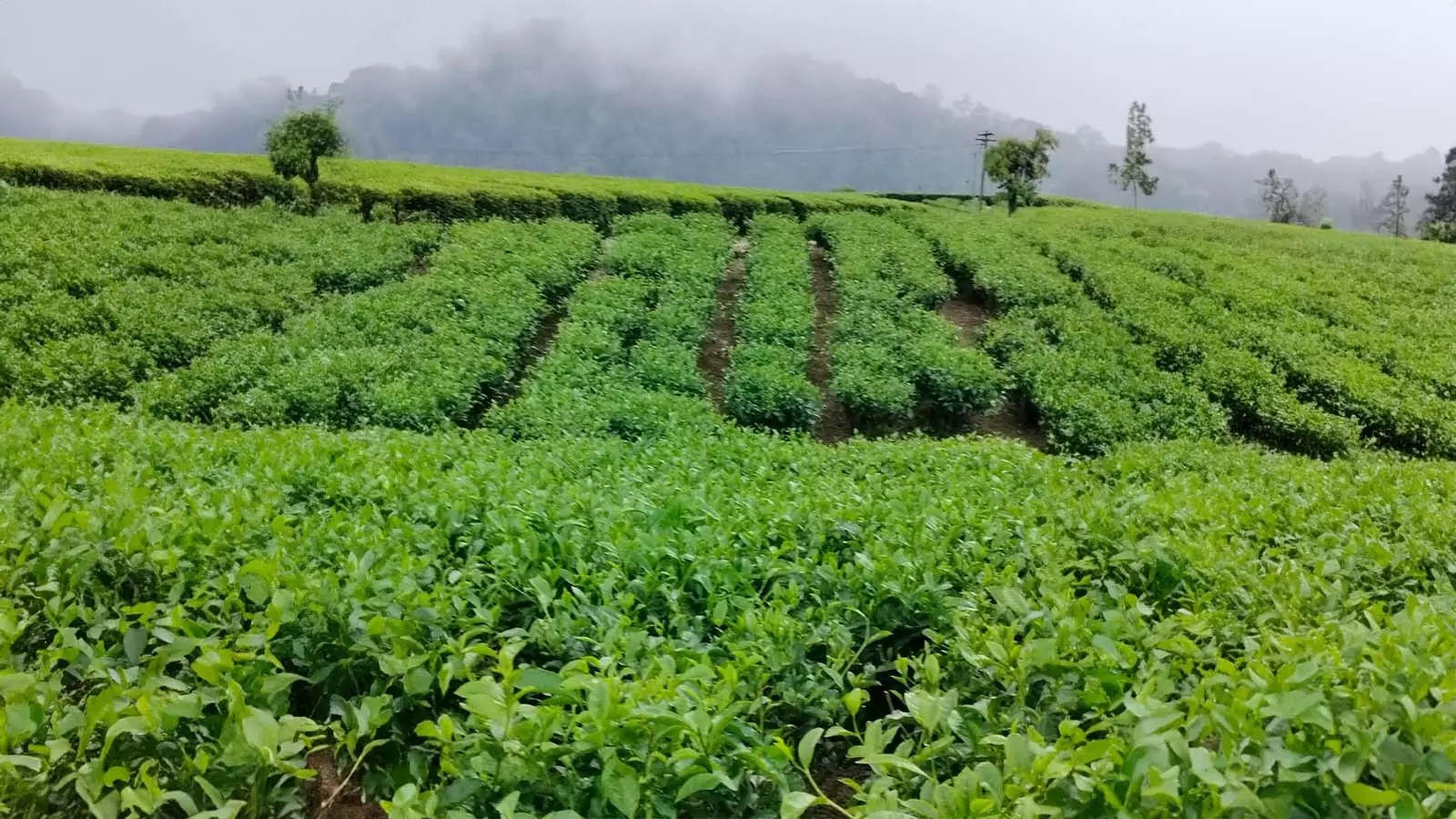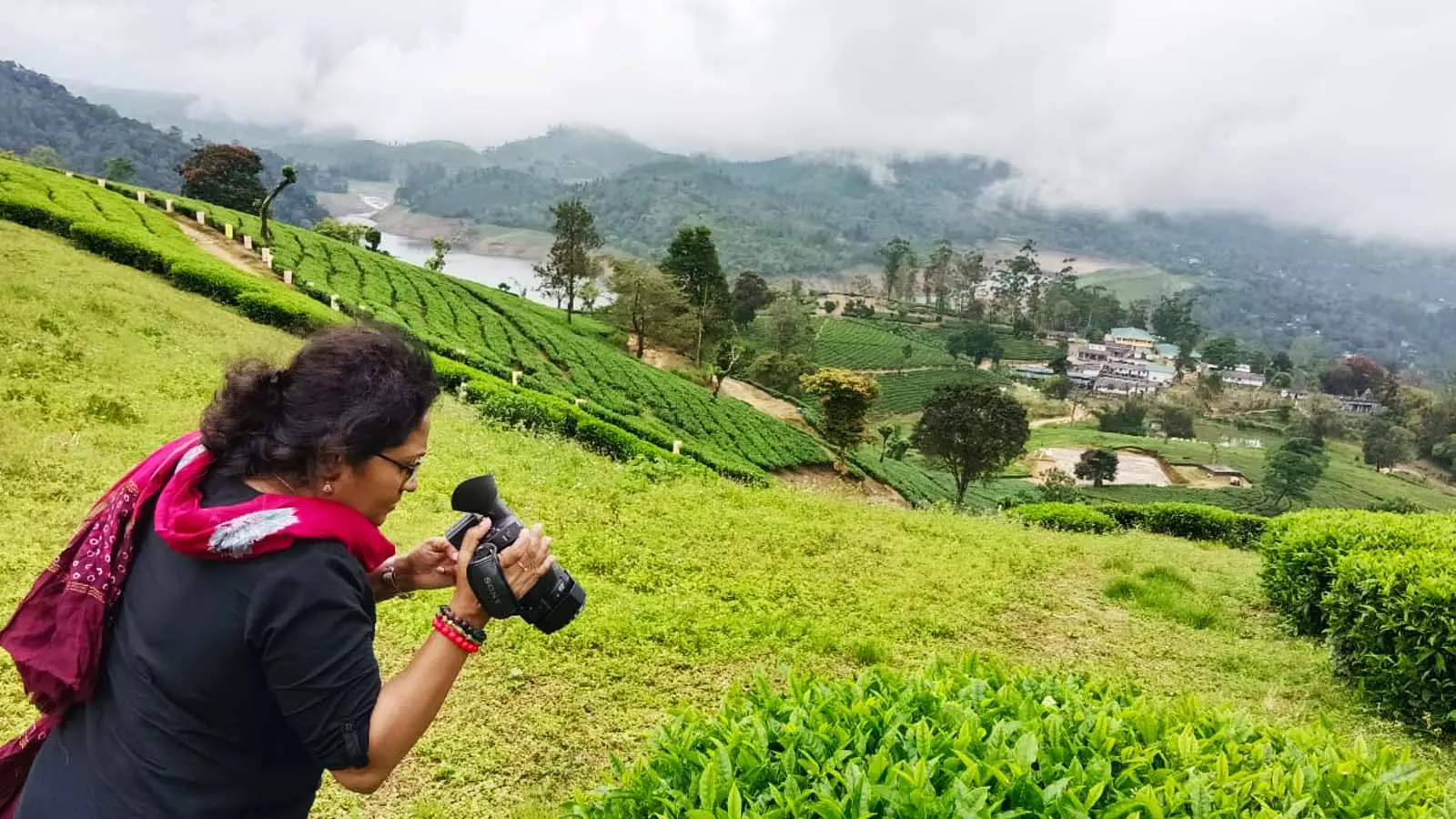
- Home
- India
- World
- Premium
- THE FEDERAL SPECIAL
- Analysis
- States
- Perspective
- Videos
- Sports
- Education
- Entertainment
- Elections
- Features
- Health
- Business
- Series
- In memoriam: Sheikh Mujibur Rahman
- Bishnoi's Men
- NEET TANGLE
- Economy Series
- Earth Day
- Kashmir’s Frozen Turbulence
- India@75
- The legend of Ramjanmabhoomi
- Liberalisation@30
- How to tame a dragon
- Celebrating biodiversity
- Farm Matters
- 50 days of solitude
- Bringing Migrants Home
- Budget 2020
- Jharkhand Votes
- The Federal Investigates
- The Federal Impact
- Vanishing Sand
- Gandhi @ 150
- Andhra Today
- Field report
- Operation Gulmarg
- Pandemic @1 Mn in India
- The Federal Year-End
- The Zero Year
- Science
- Brand studio
- Newsletter
- Elections 2024
- Events
How in Tamil Nadu’s Valparai estate workers are finding it hard to enjoy tea

India is the second largest exporter of tea in the world according to data released by the Tea Board of India. In 2024, India exported 254 million kilograms of tea, surpassing Sri Lanka to take the second spot after Kenya, the largest exporter with more than 500 million kilograms of tea during that year. The news is good for the country’s exchequer, but if you look at the pathetic...
India is the second largest exporter of tea in the world according to data released by the Tea Board of India. In 2024, India exported 254 million kilograms of tea, surpassing Sri Lanka to take the second spot after Kenya, the largest exporter with more than 500 million kilograms of tea during that year. The news is good for the country’s exchequer, but if you look at the pathetic living conditions of the tea estate workers in India, you may wonder. Living in the tiny, dilapidated cottages with meagre daily wages, most of the estate workers lead a miserable life. Since the tea estates are situated in remote pockets, they don’t get advanced medical care when it is needed.
The tea undergoes numerous processes before getting into our cups and the workers, mostly women, play a significant role in it. Valparai, a hill station in the Coimbatore district of Tamil Nadu, is known for its scenic tea meadows and other plantations but the freshness of the dew in the misty peaks hardly reflect in the lives of the estate workers here. Gita Hudson’s Koopukkadu captures the socio-economic conditions of the lives of workers in the tea estates of Valparai. The 60-minute-long documentary is based on Koopukkadu, a novel in Tamil written by Ara (Arumugham Raju). Published in 2022, the novel portrays the history of tea plantations in south India and the lives and struggles of the estate workers in Valparai region.

Novelist Ara with the tea workers of Valparai.
The wages are low, and the working conditions are poor. No proper dress codes and even today women cover themselves with layers of jute sack and plastic sheets to protect themselves from sharp stems and rain. The estate hospital cannot treat all diseases and one has to travel more than four hours maneuvering 45 hairpin bends to reach the main hospital in Pollachi. A bear attacked a farmer, and in another incident a woman died during childbirth due to lack of facilities in the hospital, said Gita, sharing her experience during the shoot in the hill station. The women pluck kilograms of leaves but interestingly tea is not included in their monthly rations. Gita’s documentary Koopukkadu raises some pertinent questions: India being the second largest exporter of tea, why do the workers face such hardships in the sector?
Ara is a human resource professional who was in the corporate world for three decades. Born to a plantation worker-couple in Valparai and raised here, Ara was a witness to the life and struggles of the estate workers here. In Koopukkadu, he brought out what he experienced in his childhood in the tea estates. “In the 1970s and 80s, I rarely saw elephants. Today, the region is known for human-animal conflicts. Deforestation was not so deep during my childhood. Animals had their own places. As the tea estates expanded, the wild animals started losing their territory. And it leads to human-animal conflicts in the region,” said Ara, who lives in Chennai.

A tea estate in Valparai
If you look at the way the workers live in the poorly maintained cottages in the estates, you will know how difficult the situation is. Ara said a relative was once bitten by a snake. But he was taken to the hospital as a pillion on a two-wheeler because there were no ambulances available in the area. Worse, the hospital in Valparai had no antivenom for treatment so he was taken to another hospital on the same two-wheeler. It took more than four hours, and he died on the way. “The garden hospitals don’t stock proper medicines. They will treat for fever, injuries and cuts but they don’t treat for serious illness. A couple of months ago, a man who was suffering from spondylitis, was wrongly diagnosed and treated for a heart attack," he said.
It was after reading Ara’s novel Koopukkadu that Gita thought of making a documentary on it. As a child, Gita would visit the Nilgiris with her dad who was a police officer out there. She was fond of the tea meadows, and didn’t know the struggles that the estate workers underwent. The novel was a revelation for her about the life of the workers in the tea estates. As an artist, Gita has made more than 30 documentaries since 2005, as she feels that film-making is an extension of fine arts. She has been making documentaries for the last 20 years, and they are based on the lives of contemporary artists like Yusuf Arakkal, Achuthan Kudallur, C Douglas and Masters of the Madras Art Movement as well as various folk forms across India through her travels.
Even though the novel brought out the lives of estate workers in 2022, both Gita and Ara wanted to take it to the next level. “In the novel, Ara wrote about the real stories of people but with a fictional flavour. But while shooting for the documentary, we wanted to capture the real story. We spoke to union leaders, workers and recorded their statements. Many told us that they are leading a pathetic life and are exploited to the maximum,” said Gita, an artist-filmmaker based in Chennai.
The government has fixed Rs 395 as the minimum wage for a plantation worker a day. However, the estate owners somehow managed to sign an agreement with the support of the four union leaders at Rs 345. Activist-novelist Ara sees this as a ridiculous act from the part of the union leaders of Valparai. “They signed the document raising many issues related to the pandemic. They said the production had come down heavily due to the pandemic-imposed lockdown and the tea companies in the region would close down soon. Scared, the workers agreed to it. But the tea estates never restored the wage and they still maintain the same as the daily wage of a worker,” said Ara.
Muniyamma, a worker, said they agreed to the management’s 'strategy' mainly because they don’t have any other options left. “I have been working here for the last 20 years. We are not in a position to move out because we don’t have a house. My husband is not well so we have few options left. There are many workers like me in Valparai who have been denied the basic wage prescribed by the government,” she said.

Gita’s documentary Koopukkadu raises some pertinent questions: India being the second largest exporter of tea, why do the workers face such hardships in the sector?
For Gita, it was an interactive experience as she moved from one estate to the other with her camera. “My first interview for the documentary was with a union leader. He spoke about the issues that the workers face but tried to ignore the wage that they receive. From this first interview, I realised that the union leaders are part of the organisation. The more I spoke to the workers, the more I was convinced about it. Many workers, particularly women, came forward and explained to me the basic problems that they face. I have included all those interactions in the documentary,” said Gita. “The workers have targets to achieve with fixed kilograms of leaves to be plucked a day. Each one has to achieve the target irrespective of rain or sunshine. Many workers were indifferent to visitors as they didn’t want to waste time. They were rushing to finish their targets,” she added.
A screening of Koopukkadu, held in Chennai a week ago, evoked tremendous response. Many writers, community and union leaders and people from various walks of life were present. Gita and Ara want to screen the documentary in Valparai and Coimbatore to create more awareness about the plights of workers in the tea estates. “We want to create awareness among people about the plight of estate workers in Valparai. The situation is more or less the same in many tea estates in India. The Chennai screening of the documentary went on well and we are planning to screen it in other regions as well. I want the union leaders and members of the planters’ associations in Valparai to watch this documentary. I know all issues can’t be resolved but it will be nice if at least the daily wages of the workers are restored,” said Ara.
